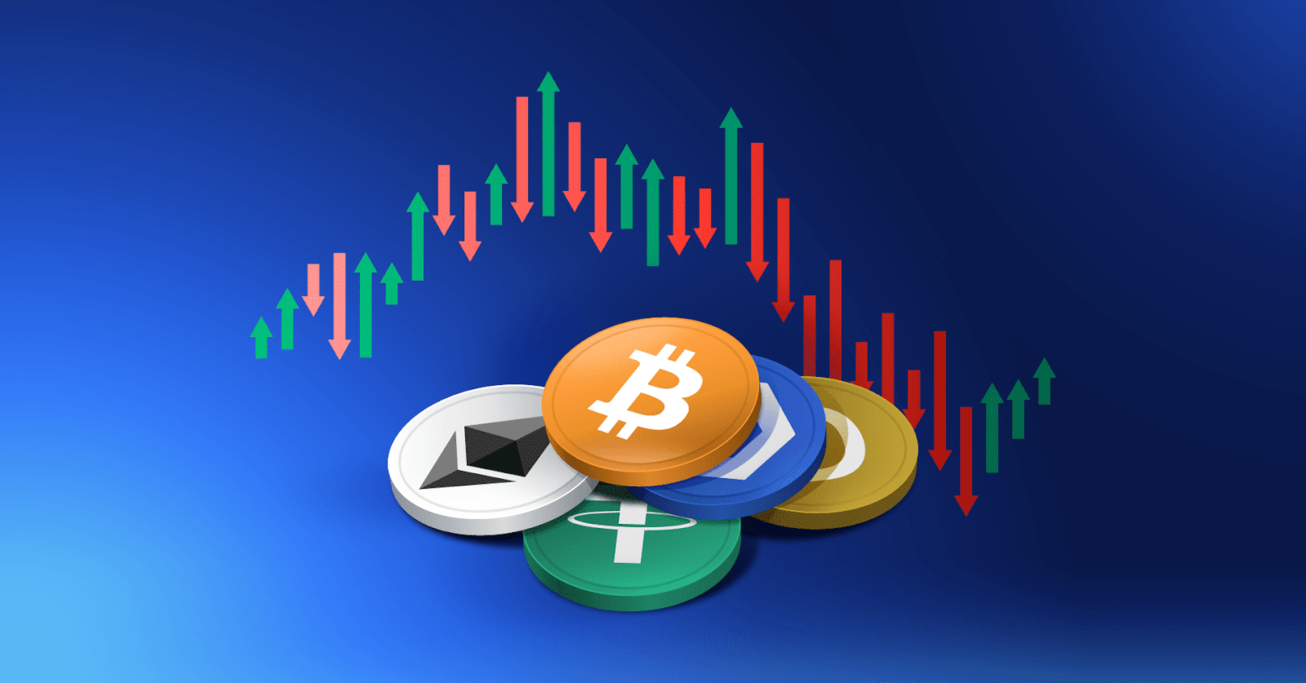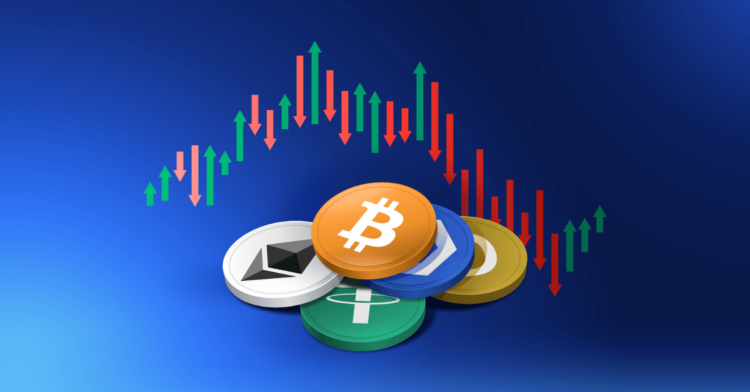Navigating the ever-evolving crypto coin market can be challenging. However, understanding "Altcoin Insights" can significantly boost your investment strategy. As altcoins continue to develop and diversify, they offer unique opportunities that could reshape your portfolio. It is crucial to analyze key factors before making investments, such as market trends, technological advancements, and regulatory changes. By focusing on promising altcoins and employing effective risk management strategies, you can make informed decisions that maximize potential returns while minimizing risks.
The Evolution of Altcoins in the Cryptocurrency Market
Altcoin Insights reveal that the evolution of altcoins in the cryptocurrency market has been marked by innovation and diversity. Initially, Bitcoin dominated the scene as the first and most well-known cryptocurrency. However, as technology progressed, alternative coins, or "altcoins," began to surface, each aiming to address specific shortcomings of Bitcoin and introduce new functionalities.
Key Milestones in Altcoin Development:
- 2011: Litecoin emerged as one of the first altcoins, offering faster transaction times.
- 2013: Ripple and Dogecoin were launched, with Ripple focusing on banking solutions and Dogecoin gaining popularity through its community-driven approach.
- 2015: Ethereum revolutionized the market with its smart contract capabilities, allowing for decentralized applications (dApps).
Key Innovations Brought by Altcoins:
- Smart Contracts: Ethereum’s introduction.
- Speed and Cost Efficiency: Litecoin’s quick transaction times.
- Privacy Enhancements: Monero and Zcash offer anonymized transactions.
Consequently, altcoins have become integral to the broader crypto ecosystem. Understanding these Altcoin Insights can provide a deeper appreciation of their roles and future potential in the market.

Key Factors to Consider When Investing in Altcoins
When venturing into the diverse and ever-evolving world of altcoins, investors need to keep several critical factors in mind. Altcoin Insights indicate that careful consideration of these elements can significantly influence investment outcomes:
Market Capitalization: Understanding the market cap of an altcoin helps gauge its market size and potential stability. Larger caps often imply lesser volatility compared to smaller ones.
Technology and Use Case: Evaluate the technology behind the altcoin and its real-world applications. An altcoin with a unique and practical use case generally presents a more robust investment opportunity.
Development Team: Assess the credentials and transparency of the development team. A competent, credible team can instill greater confidence in the project’s long-term success.
Community Support and Adoption: Altcoins with strong community support and widespread adoption tend to have more staying power. Active communities can also indicate greater trust and interest in the project.
Regulatory Environment: Stay informed about the regulatory landscape, as changes in regulation can impact altcoin valuations dramatically.
By carefully analyzing these key factors, investors can make more informed decisions, leveraging their Altcoin Insights to navigate the complex crypto coin market more effectively.
Promising Altcoins to Watch in 2023
Navigating the ever-evolving world of cryptocurrencies requires keen Altcoin Insights. In 2023, several altcoins show promising potential, making them worthy of close attention. Here are the top altcoins to keep an eye on:
Ethereum (ETH)
- Key Features: Leading platform for smart contracts and decentralized applications (dApps).
- Why Watch: Continuous development, including the transition to Ethereum 2.0, aims to improve scalability and sustainability.
Polkadot (DOT)
- Key Features: Enables interoperability between different blockchains.
- Why Watch: The unique parachain structure allows for faster and more efficient transactions.
Cardano (ADA)
- Key Features: Employs a research-driven approach to its development.
- Why Watch: Focuses on sustainability, scalability, and commitment to peer-reviewed research.
Solana (SOL)
- Key Features: High throughput blockchain platform.
- Why Watch: Known for its speed and lower transaction costs, attracting many developers and projects.
Comparison of Main Attributes
| Altcoin | Scalability | Development Potential | Transaction Speed |
|---|---|---|---|
| Ethereum | High | Significant | Moderate |
| Polkadot | High | High | Fast |
| Cardano | Moderate | Significant | Moderate |
| Solana | High | High | Very Fast |
By leveraging these Altcoin Insights, investors can make informed decisions in the crypto market. Each of these altcoins presents unique opportunities dependent on their technological advancements and adoption rates in 2023.
Strategies for Managing Risks in Altcoin Investments
Navigating the volatile world of altcoin investments requires diligent risk management. Below are essential strategies to consider for minimizing potential losses:
1. Diversify Your Portfolio
- Invest in a variety of altcoins to spread risk.
- Example: Instead of investing solely in Ethereum Classic, balance your portfolio with altcoins like Cardano and Polkadot.
2. Set Stop-Loss Orders
- Define a price limit where you will sell the altcoin to avoid further losses.
- Example: Set a stop-loss order for Bitcoin Cash at 10% below your purchase price.
3. Conduct Thorough Research
- Analyze market trends and project fundamentals before investing.
- Example: Study historical data and team credentials for each altcoin.
4. Stay Updated on Market News
- Follow market news to react promptly to changes.
- Example: Use cryptocurrency news apps to get real-time updates on altcoin developments.
5. Limit Your Investment Amount
- Only invest a small percentage of your total portfolio in altcoins.
- Example: Allocate no more than 20% of your investment funds to altcoin assets.
6. Regularly Review and Adjust Your Portfolio
- Continuously evaluate your investments and adjust based on performance.
- Example: Rebalance your holdings every quarter to match your risk tolerance.
By implementing these Altcoin Insights, investors can better manage risks and make informed decisions in the crypto coin market.

Frequently Asked Questions
What exactly is an altcoin?
Altcoin is short for "alternative coin" and refers to any cryptocurrency other than Bitcoin. Altcoins encompass a broad spectrum of coins, each with unique features, use cases, and underlying technologies. They were created to improve upon the perceived limitations of Bitcoin or to serve specific niches within the cryptocurrency market. Examples include Ethereum, known for its smart contract functionality, and Ripple’s XRP, designed for facilitating cross-border transactions.
How do I evaluate which altcoin to invest in?
Evaluating an altcoin requires thorough research and consideration of several factors. Investors should look at the technology behind the coin, the problem it aims to solve, the team and developers supporting the project, and the coin’s market adoption and community support. Additionally, it’s important to review the coin’s whitepaper, which outlines its purpose and the mechanisms it employs. Understanding market trends, historical performance, and potential regulatory issues are also crucial steps in the evaluation process.
What are the risks associated with investing in altcoins?
Investing in altcoins carries several risks, including market volatility, regulatory uncertainties, cybersecurity threats, and project-specific risks. Altcoins can experience significant price fluctuations within short periods, which can result in substantial financial losses. Regulatory changes can also impact the market and the viability of certain altcoins. Moreover, altcoins, like any digital asset, are susceptible to hacking and other cybersecurity risks. It’s vital to conduct extensive research and consider these risks before investing in altcoins.
How do altcoins differ from Bitcoin?
Altcoins differ from Bitcoin in various ways, including technological architecture, intended use cases, and consensus mechanisms. While Bitcoin primarily serves as a digital currency or store of value, many altcoins offer additional functionalities. For instance, Ethereum uses smart contracts to execute transactions automatically based on predefined conditions, whereas Litecoin focuses on faster transaction times and lower fees. These differences are designed to address specific limitations or target niche applications within the broader cryptocurrency ecosystem.











